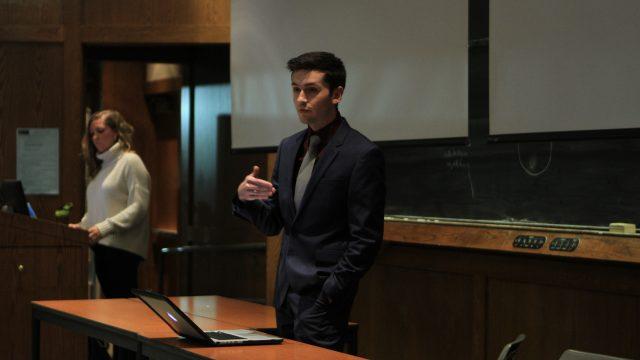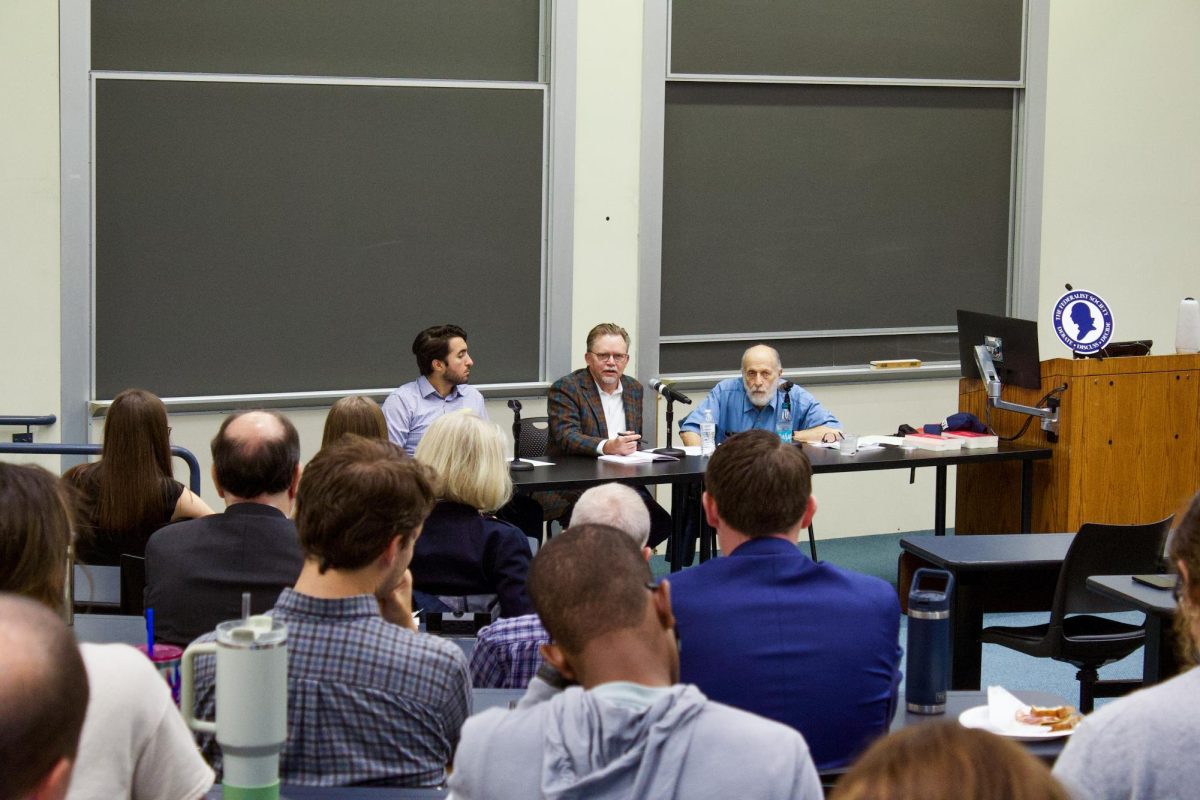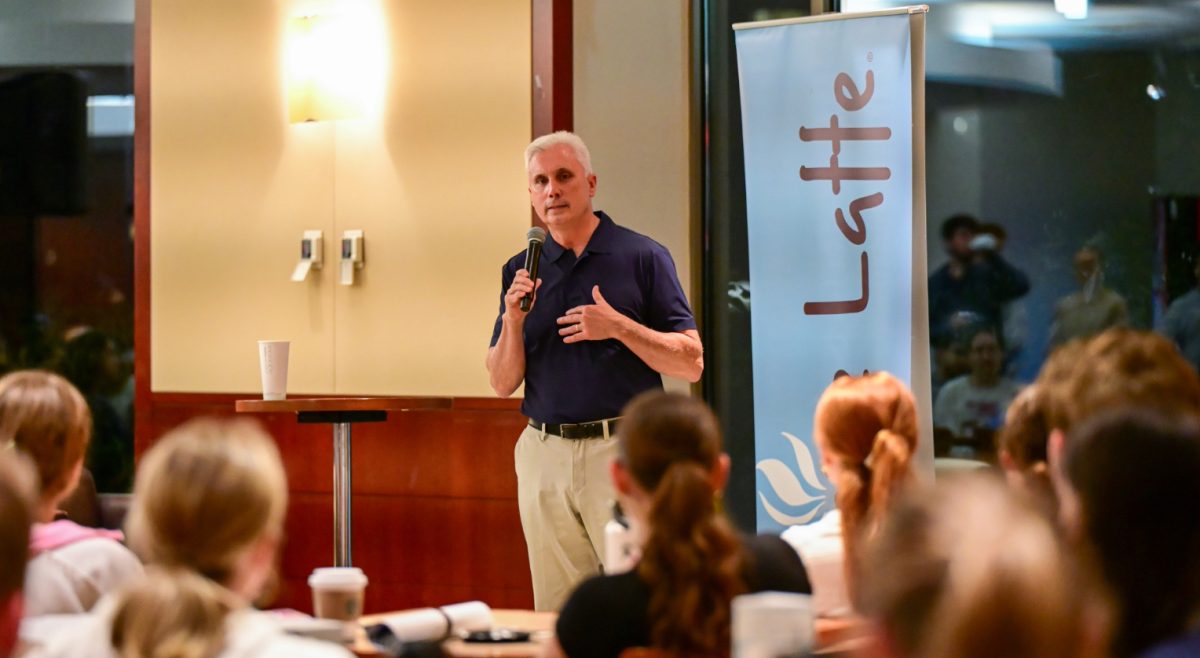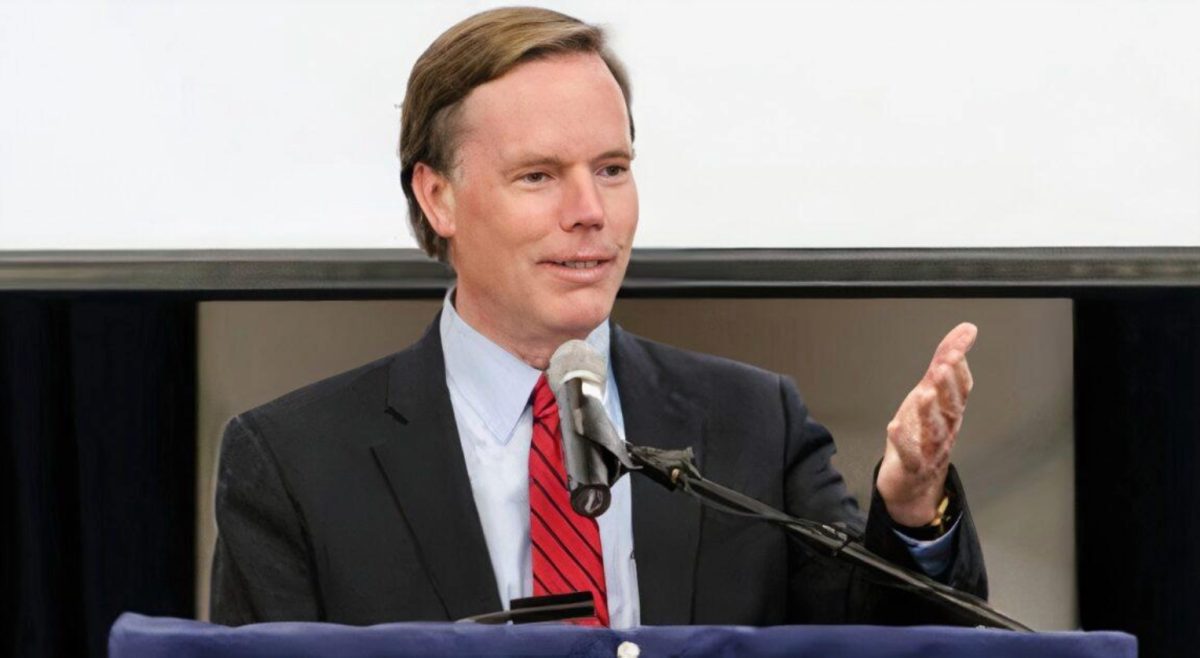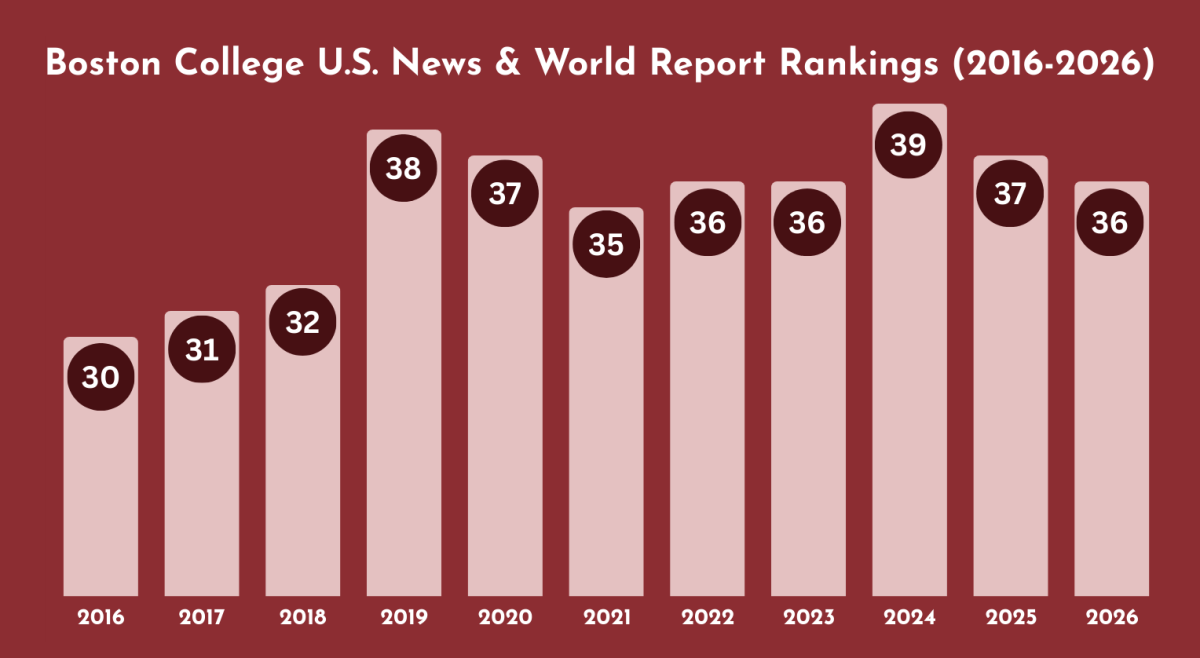On Sunday night, the Undergraduate Government of Boston College’s Student Assembly passed two resolutions on the topic of gender identity—a resolution concerning transgender and gender nonconforming students, and a resolution concerning gender identity, gender expression, and the notice of nondiscrimination. Senator Joshua Frazier, MCAS ’20, sponsored both resolutions.
The resolution concerning gender identity, gender expression, and the notice of nondiscrimination called on the University to include the terms “gender identity” and “gender expression” in the University’s Notice of Nondiscrimination, which states that BC will comply with all state and federal laws prohibiting discrimination in employment and in educational programs on the basis of an individual’s race, color, sex, religion, disability, sexual orientation, etc.
The resolution uses the American Psychological Association’s definition of “gender identity,” which reads, “a person’s deeply‐felt, inherent sense of being a boy, a man, or male; a girl, a woman, or female; or an alternative gender … that may or may not correspond to a person’s sex assigned at birth.”
“The Notice of Nondiscrimination is there for a reason, and we are leaving very marginalized individuals out by not including them in our Notice of Nondiscrimination,” Frazier said. “And that doesn’t just account for students, it’s everyone here—staff, faculty, students, everyone.”
A resolution had been passed two years earlier calling for the same action—for “gender identity” and “gender expression” to be included in BC’s Notice of Nondiscrimination.
The resolution passed with one nay vote, from Michael Proietta, MCAS ’19.
A resolution concerning transgender and gender nonconforming students called on the bodies within UGBC to use inclusive gender pronouns and neutral, transgender options in their identifying applications and documentations. The operative text also called on organizations, administrations, and offices around campus to adopt the use of inclusive gender pronouns and neutral, transgender options in their identifying applications and documentation.
Frazier cited the ideal of cura personalis, the Jesuit mission of educating and growing the entire person, and states that the health of individuals who identify as transgender or gender non-conforming is compromised by refusal to recognize their “entire person.”
To clarify, Frazier noted that the simplest implementation of this resolution would be for applications and documents to include a fill-in-the-blank option for gender, and an individual’s preferred pronouns, in addition to the standard male and female options. It would, however, ultimately be up to individual offices and organizations on how they would implement this on their forms.
Proietta, having prepared a pre-written response, took members back to the “seemingly foreign” Middle Ages, when an academic debate between realists and nominalists ensured. He explained that realists believed that universals—the “treeness” of a tree, or the humanity of a human—existed, while the nominalists did not, except on the level of names.
“It goes without saying, I think, that the relationship between biological sex and its externalization in society as gender is a complicated one,” Proietta said. “But there is a distinction, I think, between reality and imagination.”
Proietta went on to describe two complementary principles—masculine and feminine—within the divine and in nature. He compares this idea to the concept of yin and yang for the Chinese or Dionysus and Apollo for the Greek. He described this as a metaphysical essence that precedes society and biology. Proietta warned of perpetuating a retrogressive culture of hypersensitivity and self-absorption leading to diminishing reality into mere language.
“Unless we transcend these hairsplitting particularities of identity politics, we will forget the universal, that which unifies all human beings. For these particularities create more divisions than actually fixes,” he said.
Collin Pratt, vice president of Diversity and Inclusion and MCAS ’17, was quick to respond, thanking Proietta for defending his version of reality, but he moved to counter Proietta’s response by acknowledging the discrimination and violence that transgender individuals endure. He continued to say that it was people who called the transgender issue “nonsense hypersensitivity” who perpetuate the discrimination against transgender individuals.
The resolution passed with nay votes from Raymond Mancini, CSOM ’19, and Proietta, and one abstention.
Featured Image by Amelie Trieu / Heights Editor

